Hull Services’ Journey to Truth and Reconciliation Continues With an Indigenous Strategy
A flourishing garden is one tended by hands that gave it the nourishment needed to thrive – one simply can’t plant a seed and expect it to grow. This concept mirrors Hull Services’ path to truth and reconciliation – we’ve planted our seeds of truth, now we must nurture those seeds as they grow towards reconciliation.
The comprehensive report released by the National Truth and Reconciliation Committee (TRC) in 2015 highlights the devastating truth of the colonialization and appropriation Indigenous people in Canada endured since the arrival of European settlers and persisting through the era of residential schools, the Sixties Scoop, and even today. The report exposes the abuses that stripped Indigenous people of their rights and identity, leading to the serious lasting effects of cultural loss, intergenerational trauma and socio-cultural disparity that are still present today. Now, the TRC’s 94 Calls to Action guides Canadians through the difficult residential school history and paves the way for long-lasting reconciliation across Canada.
“Hull Services, as an Agency, has a responsibility to honour truth and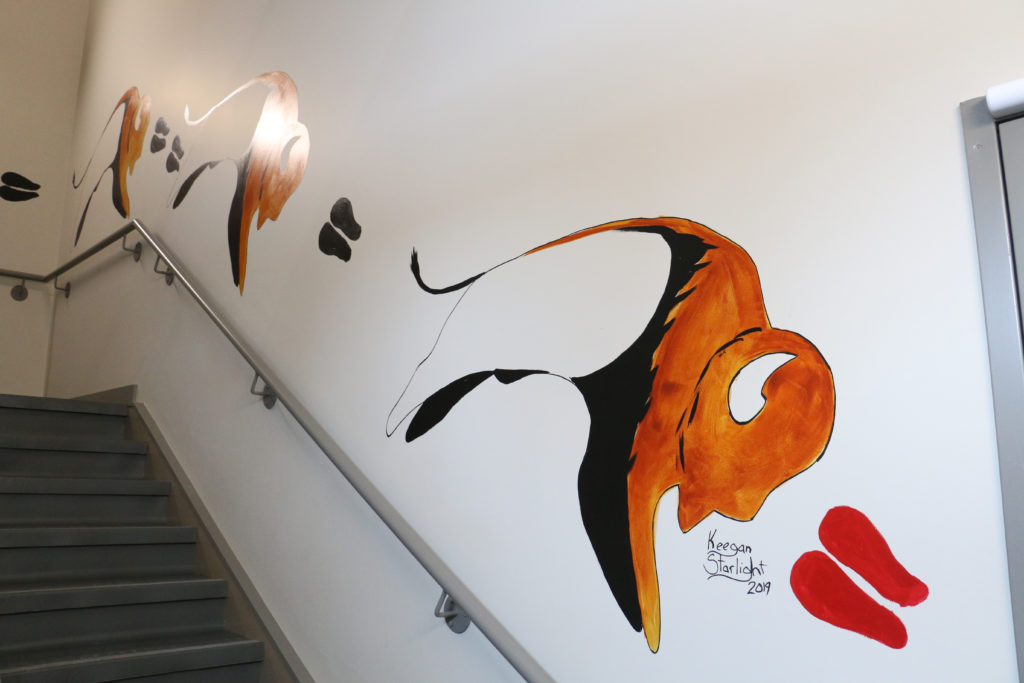 reconciliation,” says Valerie Sipos, Program Coordinator of the Braiding the Sweetgrass program at Hull. “And, as an Indigenous woman, of course, this is important to me and has been my life’s work in one capacity or another.”
reconciliation,” says Valerie Sipos, Program Coordinator of the Braiding the Sweetgrass program at Hull. “And, as an Indigenous woman, of course, this is important to me and has been my life’s work in one capacity or another.”
Hull as an Agency has taken the beginning steps of developing an Indigenous Strategy as a way to support our goal of honouring the path of Truth and Reconciliation with Indigenous people in all of our work, as outlined in our 2019-2022 Strategic Directions.
Twelve Working Group Committee members, including Hull’s senior leadership, a board member, key Hull staff and external Indigenous advisors, are in the early developmental stages of the strategy, with Sipos and Kerr taking the lead.
“While Hull Services has demonstrated its commitment to delivering services in a culturally appropriate way for many years, we have a long way to go toward fully living our value of inclusion, ensuring equity and truly walking a parallel path with Indigenous people,” says Kerr. “I’m very excited to see how this strategic process helps Hull to pursue cultural justice and open doors to completely new ways of partnering with Indigenous communities.”
“Hull has had the courage and bravery to step outside of the box.”
– Casey Eagle Speaker
This strategy is another building block to what Hull has already been doing to implement Indigenous perspectives into the Agency, which includes: cultural practices and resources for the young people and families within our programs; staff training; Elders in our programs; Indigenous art throughout our campus and offices; and the Piitaasaapii Indigenous Leadership Scholarship that is available for staff to further their education.
“The strategy will reinforce the many good things already happening at Hull and in addition change the way we think when we are revisiting policy, processes, and developing new and innovative programming,” says Sipos. “Indigenous perspectives will influence everything we do moving forward.”
Sipos stated that, when it comes to developing an effective Indigenous strategy, it’s essential that each member of the committee takes the time to not only reflect and gain knowledge of Indigenous ways of knowing, being and doing, but also learn about the diverse backgrounds and perspectives each member brings to the group.
“We need to grow together,” says Sipos.
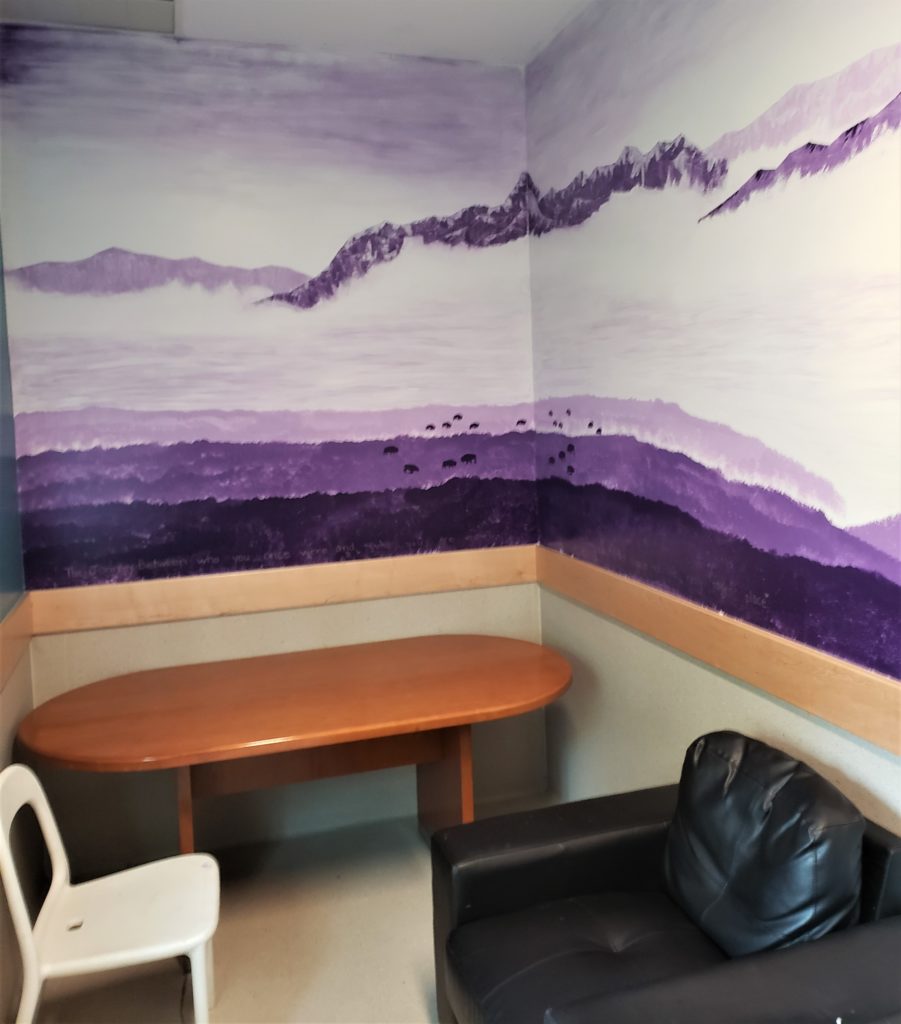
Mainly, Sipos strives for Two-Eyed Seeing (Etuaptmumk in Mi’kmaw) – an Indigenous term, which means “learning to see from one eye with the strengths of Indigenous knowledge’s and ways of knowing, and from the other eye with the strengths of mainstream knowledge’s and ways of knowing, and to use both these eyes together, for the benefit of all,” as said by Elder Dr. Albert Marshall.
Casey Eagle Speaker, Hull’s Indigenous Resource Coordinator, has been seeing the shift in our Agency regarding Indigenous perspectives since he started at Hull in 1998.
“Hull has had the courage and bravery to step outside of the box,” says Eagle Speaker. “Just look at the Braiding the Sweetgrass program, which is a takeaway from what Hull usually does. That program has had a huge positive impact on Indigenous communities.”
Hull’s Braiding the Sweetgrass program is a perfect example of the Two-Eyed Seeing perspective. The program is built on Indigenous ways of knowing, being and doing, but aligns with the important work of Dr. Bruce Perry’s Neurosequential Model of Therapeutics (NMT), a developmentally sensitive, neurobiology-informed approach to clinical problem solving; a science that has been important to the healing journey of Indigenous children and families who are navigating the effects of intergenerational trauma, while also regaining their identity.
The vision for the Indigenous Strategy has grabbed the attention and support of our Indigenous communities, especially Elders, who Eagle Speaker remains in constant contact with to keep informed.
“Elders are extremely happy about the strategy,” says Eagle Speaker. “I’ve been getting requests from Elders asking if they can be a part of Hull.”
All of Eagle Speaker’s hard work throughout the years of guiding Hull to a place where Indigenous young people and families feel accepted and respected has led to this ─ an Indigenous Strategy that will be a true voice for our Indigenous people that will echo throughout the Agency.
Sipos stated that the rippling effect of the Indigenous Strategy will not only support and teach the Indigenous young people who are receiving support in all programs, but also the non-Indigenous young people as well.
“The kids being served, that are non-Indigenous, will experience firsthand how meaningful it is for Indigenous kids to be who they are, unapologetically,” says Sipos. “We are all human beings, and we need to treat each other with kindness, caring and sharing.”
Sipos cites that the words spoken by a former Indigenous Canadian Senator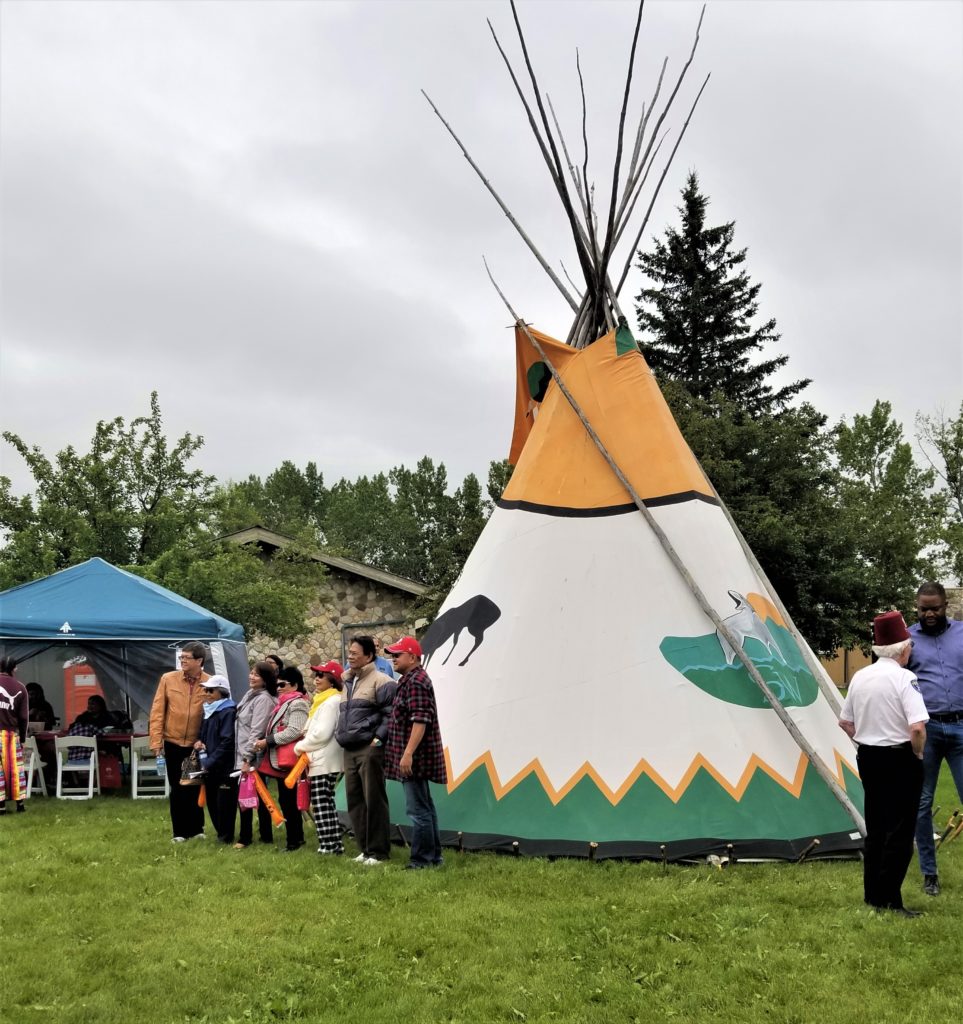 reminds us just how powerful education is.
reminds us just how powerful education is.
“The Honourable Justice Murray Sinclair, who was instrumental in bringing the Truth and Reconciliation 94 Calls to Action to the forefront, once said, ‘education is what got us into this mess, and education is going to get us out of it,’ so we need to engage in learning and teaching,” says Sipos.
And that is exactly what the Indigenous Strategy will be – a structure that will support and guide Hull as we pursue truth and reconciliation together.
The seeds of the Indigenous Strategy will take time to grow, but the bloom will be beautiful.
Hull Services’ Indigenous Strategy Working Group Members
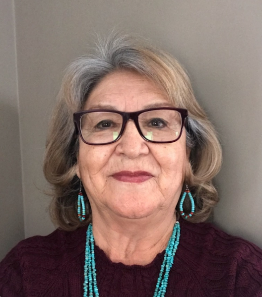 Elder Evelyn Good Striker, B.Ed., M.Ed. | Education and Cultural Advisor
Elder Evelyn Good Striker, B.Ed., M.Ed. | Education and Cultural Advisor
Evelyn Good Striker is a Lakota Dakota from Standing Buffalo First Nation in Saskatchewan and Cheyenne River Sioux Tribe in South Dakota. She grew up experiencing shifting education policies of the federal government; attending Day School, Residential School, and eventually integrating into a public school at Fort Qu’Appelle, Saskatchewan where she attained a grade 12 education. Evelyn earned a B. Ed and an M.Ed. from the University of Lethbridge. She has been in the education profession for many years as a classroom teacher and administrator. Evelyn has enjoyed her long career as an educator and cultural advisor. She loves working with students, parents, educators, and anyone who wants to engage in the excitement of learning.
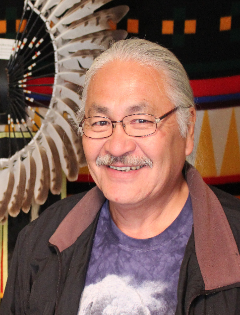
Elder Casey Eagle Speaker | Coordinator, Indigenous Resources, Hull Services
Casey Eagle Speaker is also known by his traditional name “Sorrel Horse” by his people within the Blackfoot Confederation. He is a member of the Blood Tribe in Southern Alberta.
Casey provides a wide array of presentations and workshops in the greater Calgary area and abroad, in respect to one’s journey to wellness and understanding of one’s identity and belonging. In the Year 2000, Casey was awarded the Chief David Crow Child Award from the City of Calgary for his work in cross-cultural awareness and in addition the Dr. Joseph Crow Shoe Award from the University of Calgary for his work in Aboriginal Education. As well, he has received numerous other awards for his work within society. Casey has served on several boards such as the Native Women’s Shelter, 4 Directions Foster Parents Association, Ghost River Rediscovery, Align, The Wisdom Council (AHS) and a number of advisory committees.
Casey has been working with Hull Services since 1998, as the Indigenous Resources Coordinator.
 Brian Zelt, Ph.D., R. Psych. | Senior Director, Quality, Safety and Outcomes, Hull Services
Brian Zelt, Ph.D., R. Psych. | Senior Director, Quality, Safety and Outcomes, Hull Services
Dr. Brian J. Zelt is a Registered Psychologist and the Senior Director of Quality, Safety and Outcomes at Hull Services; a large, not-for-profit organization for children and families in Calgary. Dr. Zelt received his Ph.D. in 2002 from the University of Calgary in Educational Psychology with a focus on adolescents, attachment theory and counselling psychology. Dr. Zelt is also responsible for helping oversee the administrative and clinical operations of three confined programs, one therapeutic campus-base care program, one stabilization program, and one group home for adolescents and their families. Dr. Zelt further provides private practice supports and has previously worked in a number of clinical settings including Employee and Family Assistance, residential treatment, day treatment, and foster care services in support of children, adolescents, adults, couples and families.
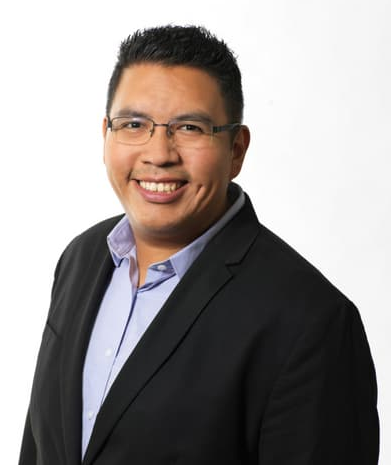
Tim Fox | VP, Indigenous Relations & Equity Strategy, Calgary Foundation
Tim Fox is a proud member of the Blackfoot confederacy from the Blood (Kainai) reserve located two hours south of Calgary. Tim has lived and worked in Calgary for the past 15 years although still considers his home fire the Blood reserve. Tim is the Vice President of Indigenous Relations where he hopes to strengthen and enhance the culture and practice at the Calgary Foundation while incorporating work of the Truth and Reconciliation Commission both internally and in the broader community.
Tim comes from the not-for-profit children and youth sector but has also been fortunate to build strong connections within the urban Indigenous community, specifically in his previous role with the Boys and Girls Clubs of Calgary (BGCC) as Manager of Indigenous Initiatives. He sits on the Advisory committee for Vibrant Community’s Calgary (VCC) Indigenous Poverty Reduction Strategy, the 4R’s Youth Movement and the United Way of Calgary and Area Natoo’si: Healing and Wellbeing Initiative.
“Indigenous culture is rooted in oral tradition. I can’t help but notice the parallels in this paradigm to the work of the Calgary Foundation through stories of impact, giving nature and work of the heart. If I were to a sum up this parallel in one word, I would simply use, community. That being said, I am excited to share some insights and set the context behind the need for Indigenous specific support within the infrastructure of the Foundation and service delivery in general. Be it through increased education/awareness internally, capacity building for the charities we support, strategic direction or seeds of information that assist us in our work with various Indigenous community groups and projects we are a part of.”
Tim shares in the values of Calgary Foundation and in the belief that there are ways this work can continue to live and thrive as we enter the next 150 years.
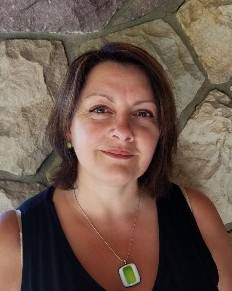 Pennie Sibbald | Coordinator, Training Services, Hull Services
Pennie Sibbald | Coordinator, Training Services, Hull Services
Pennie Sibbald is the Training Services Coordinator for Hull Services, overseeing the core agency training and the trainers providing this. In the almost 30 years with Hull, Pennie has worked in a variety of programs in front line and supervisor capacities, including group care, interdependent living, school based programming, in home support, mental health programming, and foster care, which has served to develop a better understanding of the various staff development needs across the diverse programs of Hull. As a result Pennie has the opportunity to collaborate, using a staff development lens, with programs, departments, and committees throughout the Agency. This collaboration also serves to inform the development of training opportunities that are offered to staff members.
Monique Fry | VP, Indigenous Transformation & Diversity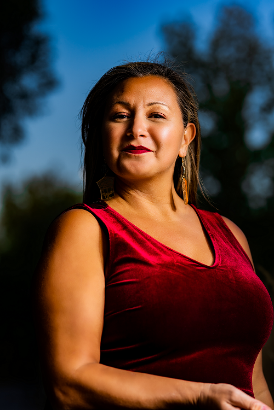
Monique is from the Xwchíyò:m First Nation on her grandfather’s side and from the shíshálh Nation on her grandmother’s side. Both Nations are located on territories that are currently known as the province of BC. She holds a Blackfoot name gifted by Elder Dr. Reg Crowshoe, which in English translates to “where the water meets the west shore spirit”.
Monique has 12+ years of experience in cross-cultural communication and stakeholder relations with a focus on successful engagement and partnerships with Indigenous communities. She brings both a lived experience perspective as a First Nations woman as well as career and academic experience holding an MA in Communication and Culture from the University of Calgary.
Monique is recognized as a Cultural Mediator, and holds relationships with diverse Elders and Knowledge Keepers from across Turtle Island. Her work in Calgary has included the intersection of understanding and tackling poverty, homelessness, health, human rights, education, justice and employment of Indigenous peoples. One of her strengths is in relationship building and connections to community leaders, as well as those in non-profit, corporate and government.
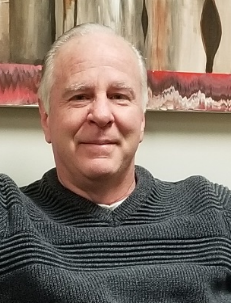 Kevin Foran | Senior Director, Community Services & Partnership Development, Hull Services
Kevin Foran | Senior Director, Community Services & Partnership Development, Hull Services
Kevin has been with Hull Services since 1985 and has worked in many programs and services during this time. He received his Masters of Arts in Counselling in 1998, was a Program Director in community based programs for 25 years and recently took on the role of Senior Director of Community Services and Partnership Development.
As a leader he has helped to develop multiple community based programs within Hull and places a strong value in family based and community practice. He believes in the importance of collaboration and in working with other service providers and the broader community in building natural and community supports for children and families.
He has recently become a part of the leadership team with Braiding the Sweetgrass, a program for Indigenous families to help prevent the transmission of intergenerational trauma effects. He is excited to put himself in a learning position to more fully understanding and supporting Indigenous ways, the effects of intergenerational trauma, and reconciliation.
Kevin has made Calgary his home for the past 35 years after moving out west from New Brunswick. He is married with two adult children and the proud grandparent of two young grandchildren.
 Emily Wang, PhD | Senior Director, Clinical Advancement & Trauma Informed Services, Hull Services
Emily Wang, PhD | Senior Director, Clinical Advancement & Trauma Informed Services, Hull Services
Dr. Wang is the Senior Director of Clinical Advancement and Trauma Informed Practice and NMT Site Supervisor at Hull Services, a Flagship Site with the Neurosequential Model Network. Dr. Wang is responsible for overseeing the implementation of the Neurosequential Model of Therapeutics (NMT) across all 27 programs at Hull. Her responsibilities include training, program development, clinical consultation and mentoring both within Hull and externally as requested. Dr. Wang is a Fellow of the Neurosequential Model Network, and is a specialist in Infant Parent Mental Health.
Dr. Wang holds a Master’s of Science in Educational Psychology, a Master’s of Art and a Doctorate of Philosophy in Clinical Psychology. She was responsible for the training of the Neurosequential Model concepts and implementation for the province of Alberta from April 2017-October 2018, and has been providing training extensively both in Canada and the United States. Her training in the NMT and the Infant Parent Mental Health Fellowship has had a significant impact on both her professional life as well as her personal life as a mother of two.
 Marianna Lambropolous | Director, Human Resources, Hull Services
Marianna Lambropolous | Director, Human Resources, Hull Services
Marianna grew up in Banff and moved to Calgary to attend University in 1999 and has never left. She holds a Bachelor of Arts in Sociology with a Minor in Psychology that she obtained at the University of Calgary. She is the Director of Human Resources and came to Hull in 2015. Prior to Hull she worked at Aspen and prior to that within the transportation industry. It did not take her long to feel like part of the Hull family.
While the majority of our employees have their roles in serving our persons served and their families, her role is to ensure that the needs of the employees are also taken care of. Because of her role, and commitment to the employees, she is chairing our strategic direction, Enabling Healthy Workplace Culture. Although Marianna’s background is in employee and labor relations, policy and procedure, recruitment, benefits, health and safety etc. her passion is organizational culture. A healthy workplace culture is important to the overall success of an organization. Hull does such important work and she is in awe of the work Hull’s employees do every day!
Jackie Sieppert, PhD | Board Member, Hull Services 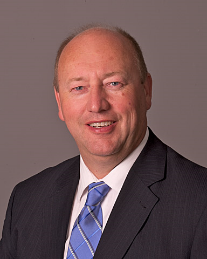
Jackie Sieppert has been a faculty member at the University of Calgary for over 25 years. After serving in roles such as Associate Dean (Academic), Associate Dean (Research & Partnerships), and Director of e-Learning, he became Dean of the Faculty of Social Work in July, 2010.
Dr. Sieppert’s professional experience includes social work practice experience in short-term adolescent care, probation, hospital and program planning settings. His primary research interests and activities focus on evaluation and accountability mechanisms in social policy and administration of human services. He also has an extensive background in exploring the use of technology in social work practice.
Under Dr. Sieppert’s leadership, the Faculty of Social Work has grown to become the largest school of social work in Canada. It delivers nationally accredited undergraduate and graduate degree social work programs across Alberta from campuses in Calgary, Edmonton and Lethbridge. Its innovative programming has also resulted in degree delivery across all of Alberta in sites such as Grande Prairie, Medicine Hat, Red Deer, Lac La Biche and on reserves in both Stand Off and St. Paul. The Faculty takes great pride in its development of unique curriculum models and its ability to blend face-to-face and technology-based instruction.
Dr. Sieppert received his Ph.D. in Social Work at Arizona State University in 1994. Prior to that he also completed a BSW. at the University of Calgary in 1986 and a MSW at the University of Calgary in 1991.
Julie Kerr | Executive Director, Hull Services
 Julie’s degrees are in psychology, and she has worked in a variety of roles in the social service, health and not for profit sectors during her 30+ year career, ranging from front line mental health and family support work to senior leadership roles in large health care organizations. She has been the Executive Director at Hull Services for two years. She believes that well-being happens within the context of meaningful relationships and meaningful activity, and her desire is to build and belong to inclusive and supportive communities where everyone can thrive and share their unique gifts. Hull reflects these values and Julie feels very much at home in this amazing organization.
Julie’s degrees are in psychology, and she has worked in a variety of roles in the social service, health and not for profit sectors during her 30+ year career, ranging from front line mental health and family support work to senior leadership roles in large health care organizations. She has been the Executive Director at Hull Services for two years. She believes that well-being happens within the context of meaningful relationships and meaningful activity, and her desire is to build and belong to inclusive and supportive communities where everyone can thrive and share their unique gifts. Hull reflects these values and Julie feels very much at home in this amazing organization.
Valerie Sipos (Chair) | Coordinator, Braiding the Sweetgrass, Hull Services
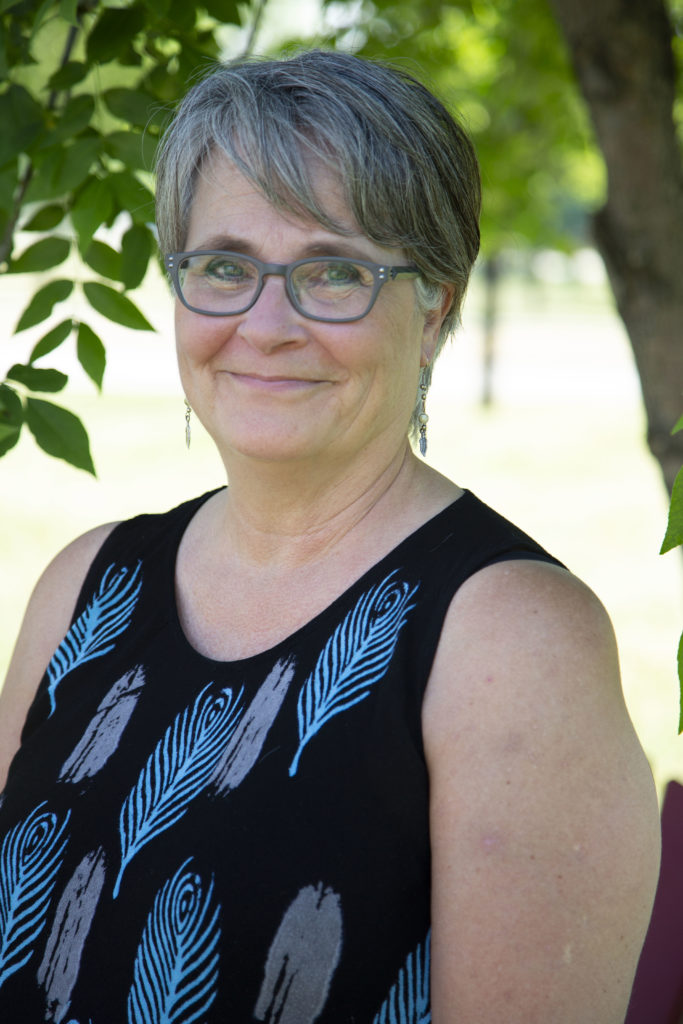 Valerie (First Thunder) is Cree/Métis born in The Pas, Manitoba and socialized in Canada’s North Country. Her worldview is something
Valerie (First Thunder) is Cree/Métis born in The Pas, Manitoba and socialized in Canada’s North Country. Her worldview is something
that she holds close and continues to guide her in everything she encounters. She moved from the north with her family to southern Alberta at the age of 16. She holds a graduate degree in Counselling and is certified by the Canadian Counselling & Psychotherapy Association.
Prior to her current position with Hull Services, Valerie has had a rich and rewarding career. She worked in large corporation for 23 years ending with HR functioning and project management. Changing careers mid-stream, she began employment with Mount Royal University (then College) responsible for the retention of Indigenous students and working as a life coach for students from a diverse range of backgrounds each rich with their own belief systems and cultures. In 2016 Valerie joined the team at Hull Services and is the Program Coordinator for Braiding the Sweetgrass.
Valerie is kokum to 6 grandchildren who keep her young and teach her many things about what it is to be a good human being. She is grateful to the peoples of the Blackfoot Confederacy to be able to live, learn and work on their traditional land.
